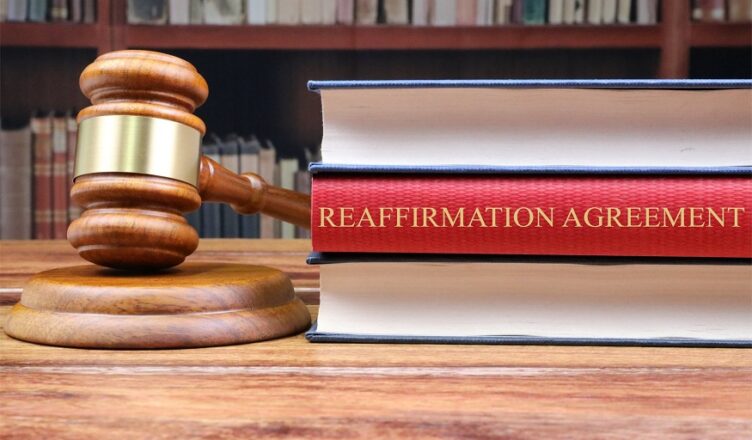The purpose of a reaffirmation agreement is basic. It offers a lender the capacity to sue you in the future, even if you obtained a discharge in a Chapter 7 bankruptcy. That’s why every Prattville bankruptcy attorney should be hostile to any reaffirmation arrangement.
Reaffirmation contracts can be troubled by a borrower in Chapter 7 that desires to keep personal effects securing a financing. Personal property collateral for such a secured financing is most often a car, yet it can also be precious jewelry. Note that “real estate,” or property is not personal property, and the Bankruptcy Code does not provide home mortgage lenders the right to enforce a reaffirmation arrangement. Note additionally, that reaffirmation contracts can not be imposed in any way in Chapter 13 bankruptcy, a real advantage of Chapter 13.
Reaffirmation agreements do not profit debtors. They just benefit the protected lenders. This is since their function is to allow secured creditors to collect the unsecured portion of an or else safeguarded financial obligation after repossession. For example, if you have a vehicle financing with an equilibrium owed of, say, $20,000, as well as the auto protecting the car loan is worth only $12,000, after that the unprotected portion of the financial debt is $8,000.
Outside of bankruptcy, if you back-pedal that finance, the car loan provider will certainly first rely on its lien versus the auto and reclaim the lorry. Presuming that the lending institution is able to auction the vehicle for $12,000, you still owe them the remaining $8,000. The loan provider after that will certainly exercise its agreement treatment versus you, and make use of different methods, including suing you to collect the $8,000 equilibrium of the financial obligation.
The Chapter 7 Discharge Protects Against Future Lawsuits
A discharge in Chapter 7 bankruptcy would certainly discharge you of your individual obligation on the unsecured section of the financial debt. That indicates the lending institution could never sue you for the $8,000 in our example over. Obviously, a Chapter 7 discharge does not remove the lien against the vehicle. Chapter 7 does not provide you the car without repaying the lien. Yet it would certainly stop the loan provider from suing you in the future if you were not able to repay the cars and truck in the future after your bankruptcy. Simply put, if you lost your ability to spend for the auto after getting a Chapter 7 discharge, and the lending institution repossessed the vehicle or if you just willingly gave up the vehicle after receiving your bankruptcy discharge, then the lending institution would be protected against from suing you for any balance owed after they auction off the auto. Get in the reaffirmation agreement.
A Reaffirmation Agreement Defeats the Bankruptcy Discharge
The Bankruptcy Code requires a Chapter 7 debtor to select what she wants to do with debts safeguarded by personal property like vehicle loan. The debtor has to either: “maintain the building and also declare the debt,” “retrieve” (suggesting keep the car and pay it off all at once), or “give up” the cars and truck. If the debtor in a Chapter 7 filed in California wants and/or requires to maintain her car, which is frequently the instance, then the lender can call for the borrower to sign a reaffirmation contract. A reaffirmation contract successfully forgoes her bankruptcy discharge regarding that financial debt.
A reaffirmation agreement creates a new binding contract in the place of the original vehicle loan. The factor that a reaffirmation arrangement is such a possibly tragic contract for the Chapter 7 debtor is just this: in the absence of a reaffirmation arrangement, if you fell on hard times after your Chapter 7 bankruptcy situation closed and also defaulted on your vehicle payments, then sure, the lender could reclaim the auto. The lender still has a lien against the car. Yet, significantly, they might not sue you for the “shortage” in between what you after that owed as well as the worth of the vehicle. A reaffirmation contract creates a brand new, post-bankruptcy binding contract, which enables the lender to take legal action against the bankruptcy debtor in case of a repossession succeeding to his or her bankruptcy.
If They’re So Bad, Why Would Anyone Sign a Reaffirmation Agreement?
Since the funding firm, cooperative credit union or financial institution that holds your automobile’s pink slip can force you to, that’s why. In Chapter 7 bankruptcy cases filed in California, the lender can reclaim your vehicle if you refuse to authorize a Reaffirmation Agreement. However, even if you do sign one, a reaffirmation arrangement must be submitted in the Chapter 7 bankruptcy instance, and it must be approved by the Bankruptcy Court. This needs a separate hearing prior to your bankruptcy court in which the judge will ask you inquiries about how you can manage to spend for the auto and whether the reaffirmation agreement will impose an “unnecessary difficulty” on you.
The bright side is that over the last a number of years, most of the biggest car lending institutions have surrendered demanding a reaffirmation contract. Essentially, they have actually recognized that a number of our bankruptcy judges will not accept them, as well as in the long run, most Chapter 7 borrowers efficiently repay their vehicle loan after bankruptcy.

